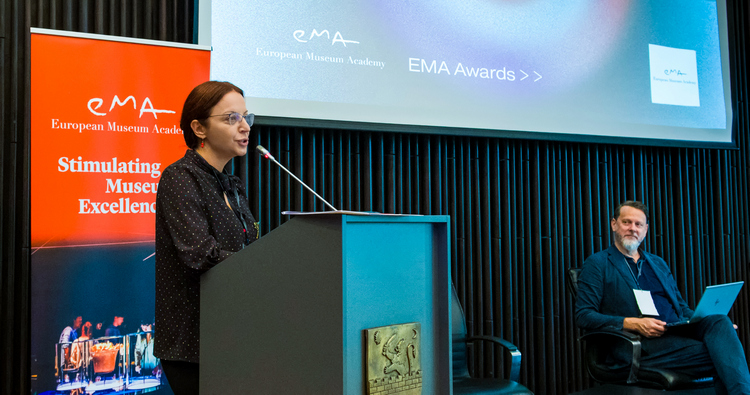Tbilisi Museums Union awarded Special Recognition at European Museum Academy Awards

The Tbilisi-based Union was honoured at the Awards hosted after the EMA annual conference and distinguished venues and institutions across Europe. Photo via Tbilisi Museums Union
The Union of Tbilisi Municipal Museums, a network bringing together nine venues in Georgia's capital city, has been awarded Special Recognition at European Museum Academy Awards this week for its "outstanding achievement" in creating a space for cooperation and innovation between its members.
In the awards ceremony hosted in the Romanian city of Timișoara on Tuesday, the Georgian institution was distinguished along with awards and mentions handed out to venues and bodies across Europe, from the Carmen Thyssen Málaga Museum in Spain to the FLUGT Refugee Museum of Denmark.
The Awards followed the annual EMA conference in Timișoara, the city which this year is bearing the European Capital of Culture title, and featured two Special Recognition titles. The other honour went to the National Museum of the History of Ukraine in the Second World War.
The Special Recognition for the Tbilisi-based institution said it demonstrated a "creative approach to knowledge generation, interpretation, and social responsibility, all while considering the complex geographical and historical context". It also noted the selection for the honour recognised the "dedicated spirit" found in the operation of the Union.
The honour was granted to the body in the DASA Award category, designed to recognise "museums that stand out in museography and educational programs, where history and heritage serve as vital educational resources and foster community engagement".
The Judges’ Report recognises an outstanding achievement in creating a network of museums in the capital city of Georgia. Co-operation and innovation are the key words of their work in the context of a difficult regional geopolitical situation.
- the Judges' Report of the EMA Awards
Formed in 2016, the Union brings together state-owned museum venues, most of which are memorial houses of historical figures of Georgia's literary scene throughout the 19th and 20th centuries, from the author, publicist and public figure Ilia Chavchavadze to poet Galaktion Tabidze and dancer and choreographer Vakhtang Chabukiani.
The body administers the venues with the double objective of hosting traditional museum spaces and offering educational programmes to visitors. The latter element includes programmes for those in juvenile rehabilitation institutions across the country, members of the armed forces and others, and teaches participants skills including making of hand-crafted dolls, mechanical machines and more.
The Union joined the Network of European Museum Organisations this year, joining over 30,000 venues in 40 European states.
The European Museum Academy was formed in 2009 to bring together professionals in the field, with this year's conference in Romania hosting meetings, mentoring events and workshops.
 Tweet
Tweet  Share
Share